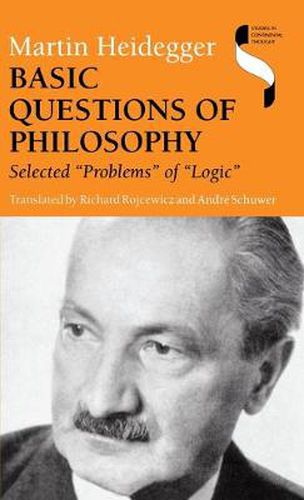Readings Newsletter
Become a Readings Member to make your shopping experience even easier.
Sign in or sign up for free!
You’re not far away from qualifying for FREE standard shipping within Australia
You’ve qualified for FREE standard shipping within Australia
The cart is loading…






First published in German in 1984 as volume 45 of Martin Heidegger’s collected works, this book is the first English translation of a lecture course he presented at the University of Freiburg in 1937-1938. Heidegger’s task here is to reassert the question of the essence of truth, not as a problem or as a matter of logic, but precisely as a genuine philosophical question, in fact the one basic question of philosophy. Thus, this course is about the essence of truth and the essence of philosophy. On both sides Heidegger draws extensively upon the ancient Greeks, on their understanding of truth as aletheia and their determination of the beginning of philosophy as the disposition of wonder. In addition, these lectures were presented at the time that Heidegger was composing his second magnum opus, Beitrage zur Philosophie, and provide the single best introduction to that complex and crucial text.
$9.00 standard shipping within Australia
FREE standard shipping within Australia for orders over $100.00
Express & International shipping calculated at checkout
First published in German in 1984 as volume 45 of Martin Heidegger’s collected works, this book is the first English translation of a lecture course he presented at the University of Freiburg in 1937-1938. Heidegger’s task here is to reassert the question of the essence of truth, not as a problem or as a matter of logic, but precisely as a genuine philosophical question, in fact the one basic question of philosophy. Thus, this course is about the essence of truth and the essence of philosophy. On both sides Heidegger draws extensively upon the ancient Greeks, on their understanding of truth as aletheia and their determination of the beginning of philosophy as the disposition of wonder. In addition, these lectures were presented at the time that Heidegger was composing his second magnum opus, Beitrage zur Philosophie, and provide the single best introduction to that complex and crucial text.